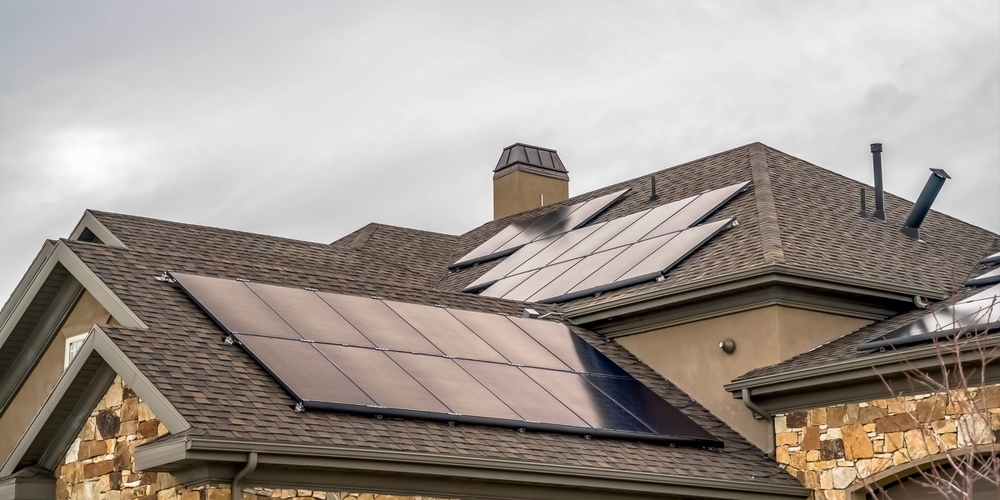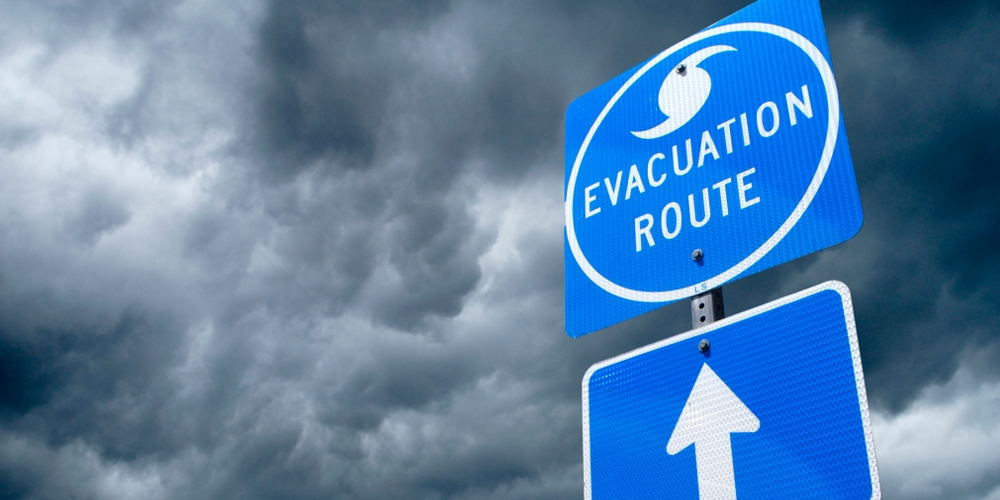Hurricanes are part of life for anyone living in the southeastern U.S. And for those who live in the coastal regions of states such as Virginia, North Carolina, South Carolina, Georgia and Florida, you may wonder whether solar panels will work after a hurricane. Or whether solar panels can withstand the winds and rain of a hurricane. Both are very good questions, and ones we can answer. Keep reading to learn more about what happens with your solar panels during and after a hurricane.

Solar panels against hurricane forces
Solar panels are made to withstand some of Mother Nature’s most extreme conditions. The typical solar panel warranty is 25 years, which shows solar panels are meant to withstand all kinds of weather – hot, cold, rain, sun, wind and hail. The surface of solar panels is made of tempered glass, which makes the panels tough. If you knock on the surface of a solar panel, it sounds like you’re knocking on a front door, not on a window. That gives a good indication of the durability of solar panels. And we have even more proof.
In 2018, Hurricane Florence hit the North Carolina coast with winds of approximately 100 mph. Supply, North Carolina, resident Matt Ruff lived in one of the areas most affected by the storm. While Ruff’s property experienced flooding, Ruff’s solar panel installation stood strong.
“These panels, they didn’t wiggle, they didn’t move through the storm,” Ruff said. “I can’t commend the installation enough. The guys that did it, did a great job.”
PV panels can potentially withstand strong uplifting forces because they’re bolted to roof trusses, or, in Ruff’s case, to a ground-mounted structure made of metal. If winds were forceful enough to remove solar panels from their base, chances are that your home will have even more damage than just solar panel damage. With that said, it’s important that you have your solar panels added to your homeowners insurance. You want to protect your investment.
How do I make sure my solar panels are hurricane-proof when installing them?
We know how important it is to have solar panels up and running when the weather takes a turn. That’s why we’ve put together some helpful tips to make sure they’re up to the task when the wind is blowing strong and the weather is anything but normal. Here are a few things to think about when installing them:
-
Location and climate: It's really important to understand the climatic characteristics of the installation site. This includes things like historical hurricane activity, average wind speeds and directions, and possible extreme weather events. This can help you design a solar power panel system that's better suited to local conditions.
-
Mounting angle: The angle and orientation at which solar panels are mounted can affect their energy efficiency, as well as their stability in strong winds. By choosing the right angle, you can help reduce wind resistance and improve wind resistance.
-
Structural design: Use a reinforced bracket and frame structure to make sure that the solar panels can be securely fixed on the ground or on the roof. The brackets and frames should be able to withstand the maximum wind speed you can expect.
-
Fixing: Use bolts and fixings with high wind resistance to ensure a solid connection between the solar panels and the brackets. For roof mounting, ensure that the fixing points have sufficient adhesion to the roof structure. Underground anchoring: For ground-mounted solar panels, consider using an underground anchoring system that buries the racking structure deep underground to increase stability.
-
Windproof design: If you can, put up windbreaks or wind barriers around your solar panel array. This will help keep the wind from blowing too hard on your solar panels. Make sure there's enough space between the panels so that the wind can blow through. This will help reduce the wind pressure on the panels.
How to keep the lights on after a hurricane
One important thing to know about adding solar at your home is that solar panel systems are almost always connected to the power grid. That allows you to sell excess energy your home can’t use back to the grid, while also giving you access to additional power when needed. Solar panels shut down during grid outages because of safety concerns, and that’s what happened with Ruff’s solar panel installation. However, for those hoping to have electricity during grid outages caused by hurricanes or other severe weather events, we have an option that can help keep the lights on.

Solar + Battery: When adding a battery backup system as part of your solar panel installation, extra energy produced by your PV panels is stored in your battery. If you’re working with PowerHome to install solar panels and a battery, your solar panels will be able to produce energy during an outage. A high capacity battery will provide backup power to 4-6 critical loads, such as your refrigerator, microwave, sump pump or home office. When the power goes out, the battery kicks in and powers these loads, making sure your house can function with the necessities. No energy is sent back to the grid until the grid comes back up.
We recommend the solar + battery combination for everyone, including those who live in coastal regions. Having the peace of mind that your home will have some power during an outage is worth the investment. When it comes to your home, there is no such thing as being too safe. You want your power source to work after any hurricane, and having solar power plus a battery covers your bases.
(1).png)
(1).png)